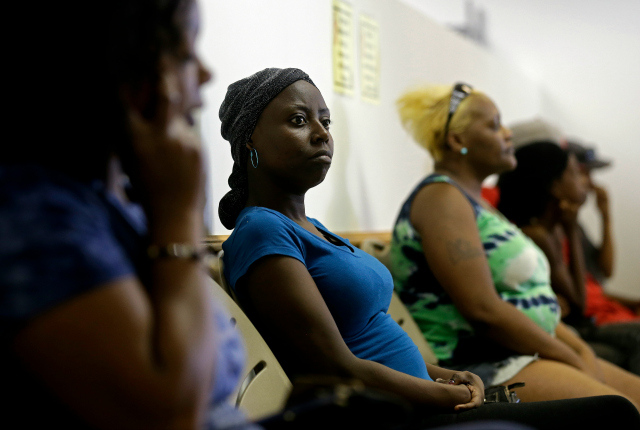 As President Obama continues a revised campaign to shore up American confidence in the Affordable Care Act, a new report released today points out that six out of 10 uninsured African Americans who are eligible for insurance through the Affordable Care Act’s marketplaces – 4.2 million people – may also be eligible for federal options and/or financial assistance with healthcare costs.
As President Obama continues a revised campaign to shore up American confidence in the Affordable Care Act, a new report released today points out that six out of 10 uninsured African Americans who are eligible for insurance through the Affordable Care Act’s marketplaces – 4.2 million people – may also be eligible for federal options and/or financial assistance with healthcare costs.
According to the report from the Department of Health and Human Services, 2.2 million may qualify for either tax credits to help purchase plans in the Health Insurance Marketplace, while the other 2 million may qualify for free to low-cost coverage through Medicaid or the Children’s Health Insurance Program (CHIP). To be eligible for the Health Insurance Marketplace one must be nonelderly and lawfully living in the United States.
Under the law, states can decide whether or not to expand Medicaid coverage to people living on at least 138 percent of the federal poverty line (currently, it’s $15,857 per year for a single person, and $38,047 per year for a family of five). This provision expands the safety net for people who are just above the poverty line, but still unable to afford packages from private companies. The government is required to provide 100 percent of funding for the first three years (phasing down to no less than 90 percent federal funding in subsequent years) to any state that expands Medicaid.
Today, 6.8 million African Americans of all ages are uninsured. Florida, Georgia, Texas, North Carolina, and New York are home to the highest populations of uninsured African Americans who are eligible for the ACA’s provisions. Of those, only New York has expanded Medicaid.
If all 50 states expanded Medicaid, 95 percent of uninsured African Americans would be eligible for Medicaid, CHIP, or Marketplace tax credits, including those without dependents in the home who have traditionally been barred from Medicaid. In addition to using the virtual marketplace to compare plans offered by the private companies in their own state, the uninsured also have the option to become insured through Medicaid, insure their children through CHIP, or use federal tax credits to mitigate the cost of a private plan from the marketplace.
Currently, 26 states have done so, and according to the report, Medicaid currently covers 60 percent of eligible uninsured African Americans. However, an additional 2.2 million eligible uninsured African American adults with family incomes below 100 percent of the federal poverty level live in states that are not expanding Medicaid. Twice as many uninsured African Americans live at the 138 percent FPL threshold, but only 1.5 million live in Medicaid expansion states. That leaves nearly 3 million people stuck between having too much income to qualify for Medicaid, but not enough to afford private plans in the marketplace without assistance.
That assistance comes in the form of tax credits to help purchase plans from the Marketplace. In states that do expand Medicaid, individuals and families with household incomes from 138 to 400 percent of the federal poverty level may be eligible for the credits (that’s $38,047 to $110,281 per year for a family of five). In states that do not expand Medicaid, those with family incomes between 100 and 400 percent of the FPL may qualify for tax credits (or $27,570 to $110,281 per year for a family of five).
The tax credits are significant. For a family of four with an income of $50,000 in Houston, Texas’ Houston County for example, the second-lowest coverage insurance package would cost $658 monthly, before applying the tax credit. With the credit, they’re covered for $282 per month (or $74 per month, for the lowest level of coverage).
For a single 27 year-old with an income of $25,000 in the south Los Angeles area, the second lowest level of coverage is $182/month before the credit, and $145 after (or, $122 and $92, respectively, per month, for the “catastrophic” plan).
This report is another in a stream of reports, speeches, and grassroots level talking points on the benefits of enrolling in the Health Insurance Market began initiated last week by the Obama administration. The reception so far has been mixed.
